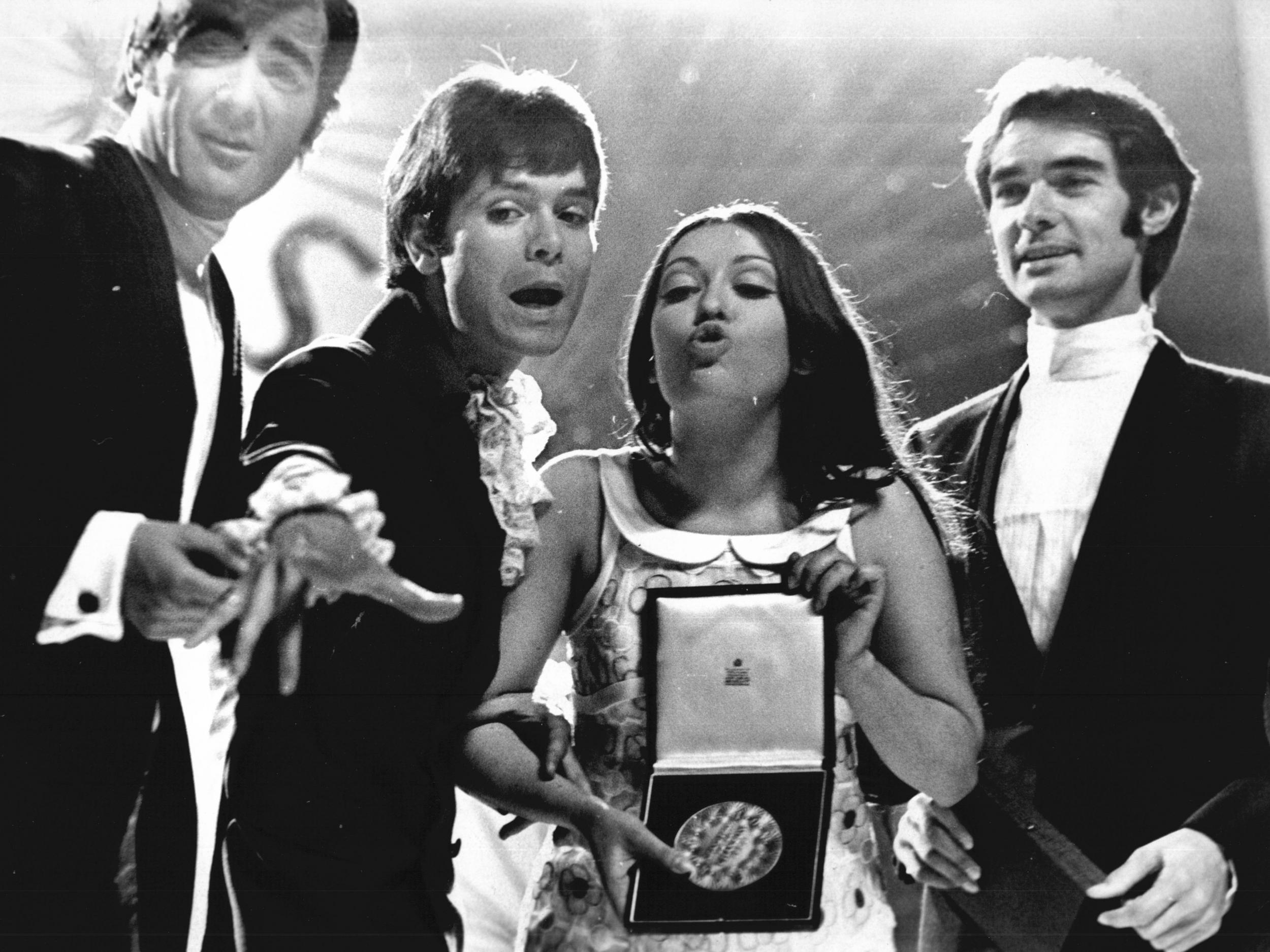Eurovision: What is the point of the annual song contest and how did it begin?
Why was the glitzy pan-European pop spectacular founded?
Your support helps us to tell the story
From reproductive rights to climate change to Big Tech, The Independent is on the ground when the story is developing. Whether it's investigating the financials of Elon Musk's pro-Trump PAC or producing our latest documentary, 'The A Word', which shines a light on the American women fighting for reproductive rights, we know how important it is to parse out the facts from the messaging.
At such a critical moment in US history, we need reporters on the ground. Your donation allows us to keep sending journalists to speak to both sides of the story.
The Independent is trusted by Americans across the entire political spectrum. And unlike many other quality news outlets, we choose not to lock Americans out of our reporting and analysis with paywalls. We believe quality journalism should be available to everyone, paid for by those who can afford it.
Your support makes all the difference.The Eurovision Song Contest remains a stalwart of the TV calendar. But what exactly is the point of this springtime extravaganza of international kitsch and how did we get here?
The idea for Eurovision was first proposed by Italian TV writer Sergio Pugliese, who worked for the country’s state broadcaster RAI in the early 1950s.
Modelled on Italy’s Sanremo Music Festival – inaugurated in 1951 and held in Liguria every year since – the contest was intended to serve as a bonding exercise in the difficult post-war years, bringing European neighbours together in the spirit of harmless fun while testing the capabilities of live broadcast television to the limit.
Pugliese’s suggestion was picked up and approved by Marcel Bezencon, president of the European Broadcasting Union, in January 1955, who developed the concept with the body’s international members, including the BBC, at a General Assembly gathering at Rome’s Palazzo Corsini on 19 October 1955 – a date to live in infamy.
The first Eurovision Song Contest was duly staged seven months later in Lugano, Switzerland, on 24 May 1956, with Swiss entry Lys Assia winning for her song “Refrain”.
The name “Eurovision” was coined by a Brit, Evening Standard journalist George Campey, who referred to the Lugano contest as the “Eurovision Grand Prix” in his coverage of the event.
That first tournament consisted of just seven competing nations, compared with 43 this year. The competition’s rules have become ever-more convoluted as new entrants were added over the years, with the breakup of the USSR in the early 1990s in particular contributing to the swelling as a wealth of nations freshly-liberated from the Eastern Bloc sought their turn in the limelight.
Contestants were initially expected to sing in their native languages but the stipulation was gradually relaxed, culminating in ABBA’s 1974 win for “Waterloo”, the Swedish disco titans singing entirely in English.
Britain first competed in the second contest of 1957, represented by Patricia Bredin, with memorable entrants to follow including Matt Monro, Sandie Shaw, Lulu, Brotherhood of Man, Bucks Fizz, Katrina and the Waves and, of course, Sir Cliff Richard (twice).

A Guardian vox pop of 1968 asked one member of the public how she felt about the UK’s prospects for the forthcoming competition and received the deliciously patriotic answer: ”Cliff Richard can always show these continentals a thing or two. He’s very sexy-looking when he jumps around, and he’s also a very good ambassador.”
A chance for countries to put their best foot forward on the international stage, Eurovision may be cheesy but it has certainly succeeded in its original aim: for one night a year, a continent puts aside its political differences to enjoy the spectacle of pan-European pop preposterousness.

Join our commenting forum
Join thought-provoking conversations, follow other Independent readers and see their replies
Comments